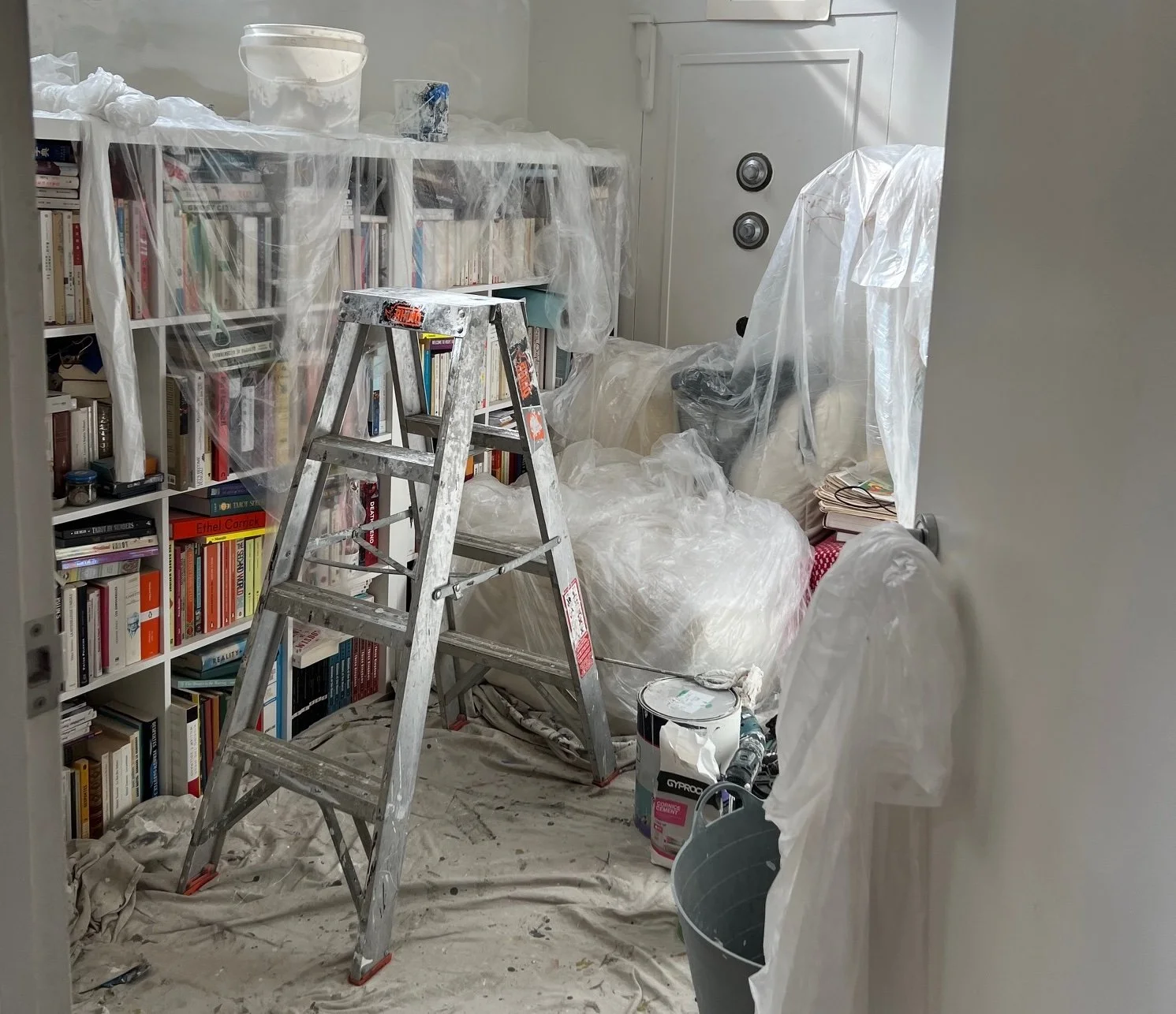Courage – Week 7 Round-up
Where I reflect on encountering the world, maintenance work, mood boosting and mutual care.
Halfway through this project, I decided to look back and read through my first six posts: what I did, what I learned, and what new insights emerged about courage.
By default, I think of courage as an extraverted effort to break out of fantasy, and test the resistance of the real. Courage tips us forward to meet the world and feel its grip. Most of my work is disembodied. The connection between brain and output is too fast, resulting in a permanent background of vague distraction. By contrast, when I do something physical – cooking or otherwise – there is a reaction from the world, which prompts a quality of attention that writing and screenwork do not offer. And, there is pleasure in that encounter.
Yet there is another aspect of courage, ingrained in me since childhood, which I often take for granted. It’s resisting the flutter of reaction to the world, and hold instead to the internal pull of an idea, a vision, a principle. It’s endurance in the face of difficulty. It’s resisting the sirens of urgency for what is weaker but more important. It’s sticking to wisdom in the face of the world’s folly.
Generally, we know what must be done. Yet this knowledge has limited power. We must build muscle to stick to the plan. So that, when mood gets in the way, courage is here to push us through. To train this muscle, on Courage Week, I set myself the task to do one difficult thing every day. The label covered anything that evokes pain, resistance, or simply sat on my to-do list for a while and never got ticked off.
Rather than a series of bold actions against the odds, I found myself engaging with a long set of inconvenient things. It was doctors, dentists, tradies, and all sorts of maintenance work. I cleared up my backend, planning and sorting things, to make life easier for myself and others. This maintenance work is difficult for a number of reasons. It comes at certain cost, and there’s no new toy at the end. It might prevent pain, but yields no great sense of pride. Medical tests or bike repairs impose the constraint of aligning with the rhythm of others. Not to mention the price tag. I paid for a water filter, CPR training, a booklet on edible weeds. Each was a bet on the future, and involved a sacrifice of cash, with its cushioning power and all-round potential.
Yet another aspect of courage I uncovered is mood boosting. Do the hard thing, and you feel different. New things appear be possible then. In parallel to doing something difficult, I set myself the challenge to dance on the street, at least a few minutes. It was awkward at first, but then exhilarating. Power wants you sad: that is the wisdom of resistance. Courage is resisting this submission, and create internal conditions where action is possible.
Rather than set up and follow harsh discipline, I found that courage often called for gentleness. I like to play life on expert mode. I set myself a difficult goal, come close to reaching it on time, and stretch it or add a constraint. It is a subtle form of pride, which occasionally takes a toll. It takes courage not only to keep commitments, but not overstretch, even lower the bar when needed, and do something rather than nothing. If I miss a beat, return to the breath and pick up where I left things.
Courage, I realised, is a radical fight against sloth. It refuses neglect as default. We’re embodied being, and so we’re needy creatures. Accepting this inner neediness – food, comfort, pleasure – is in the essence of courage. It’s knowing to calibrate our inner world, including by blunting our sense. Coffee, chocolate, alcohol, or drugs, have their place here along breathing exercises and steely resolve. Moderation in excess can hide cowardice.
Most importantly, courage is learning to live with the prospect of grief. Caring for the body as a condition of our activity is a reminder of its impermanence. Tending to the world is acknowledging its fragility. Developing our capacity to face loss is essential to reducing fear, in us and around us – hence protecting us against tyranny, and grounding our lives in freedom. This takes personal drive, committing to the hard thing and cultivating joy. It also benefits from collective settings where loss is not catastrophic. And so, cultivating courage reminded me that systems of mutual care are the cornerstone of all Republican regimes.
